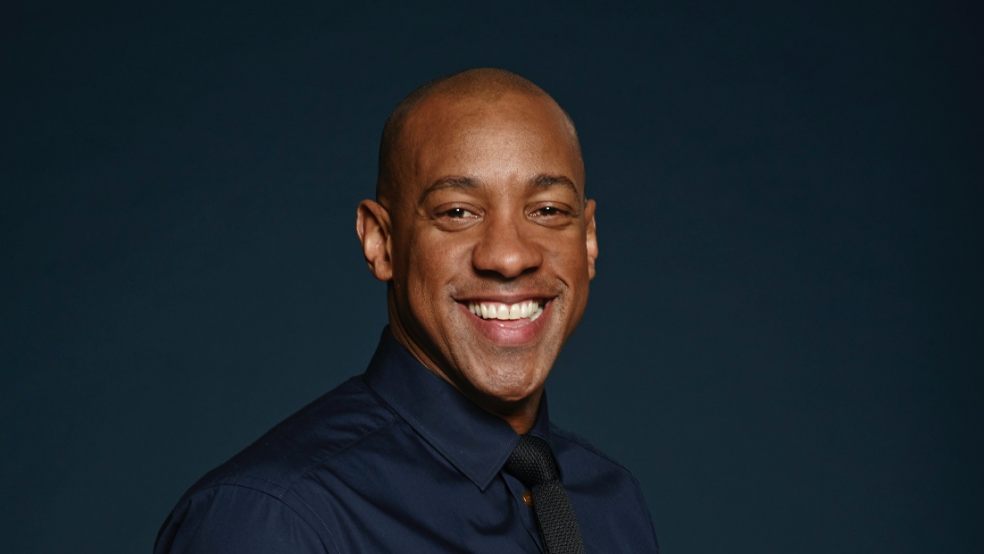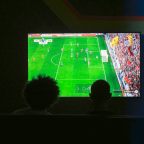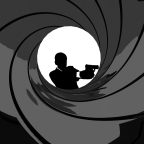
Dion Dublin says It is disappointing that we are still talking about racism in 2020
Dion Dublin is angry, or at least, very dispirited.
When he made his senior debut for Cambridge United in 1988, racism was running rife in the world’s football stadiums, and John Barnes was famously pictured back-heeling a banana off the pitch that was thrown from the crowd during a particularly nasty Merseyside derby.
That was supposed to be a ‘different era’, but the now 51-year-old Dublin is still fielding all the same questions – and having to give the same answers. “It’s 2020, and we’re still talking about racism,” he says. “It’s so disappointing.”
“I was speaking to TV stations about this stuff years and years ago,” he adds. “I am actually sick of racists doing what they do and getting away with it – something has got to be done.”
Like many black players during the Eighties and Nineties, Dublin suffered abuse on the pitch, but it’s a recent incident outside a supermarket that now really sticks in his mind.
“Two years ago I was racially abused by, if you can believe it, a blonde, white woman outside a shop. She shouted what she shouted in the entrance to a supermarket, without batting an eyelid about how it made me feel. And this was a young lady – she looked about 30.”
There’s plenty of positive change in football (“People like Troy Deeney and Wes Morgan are going the extra mile, and Marcus Rashford, I tip my hat to you – absolutely outstanding”), but Dublin says solving racism shouldn’t be left only to football and footballers.
“Football is seen by hundreds of millions, so the platform is there to be used, but it shouldn’t be the only platform. There’s a small minority of racists in this country – the majority of people are absolutely fantastic – and you’ve got to go into schools and educate everybody, so they know we’re all the same.”
“I recently heard about these two young boys who wanted to fool their teacher by getting the same hairstyle, so no one would be able to tell them apart. They didn’t realise that one of them was black and the other was white. Young kids don’t see it – it’s learned behaviour.”
Issues of race are sadly of the moment, but they’re not what our interview was supposed to be about. Alongside his burgeoning media career, Dublin is an ambassador for a Barclays and Premier League campaign to combat loneliness, especially during coronavirus.
“They’re setting up things called Digital Eagles (barclays.co.uk/digital-confidence/eagles),” he says, “teaching people who are on their own to connect with people online, talking them through how to use iPads and other things. It’s a very clever, caring initiative for people who are feeling isolated, more so given what we’re going through right now.”
Dublin’s own lockdown has not been lonely in the least – wife, kids and pets are rarely more than a room away – and has served up the kind of break even the close season rarely affords. “Normally I’m at the studio with my phone turned off three or four days a week, and there’s games at the weekend, so I don’t often get the chance to spend lots of time at home,” he explains.
“I actually haven’t found lockdown difficult at all. I’m doing more gym work than normal, I’m doing a lot of walking, my youngest is eight months old, so I’m getting the chance to watch her grow up. I have my family around me. I’m lucky.”
Of course, company doesn’t always equal camaraderie, and even in the football dressing room it’s possible to be lonely in a crowd. “The dressing room could be a pretty ruthless place,” recalls Dublin, “and some people didn’t like it.”
While he never struggled for confidence himself, he got his own taste of isolation when a broken leg saw him spend six months on the sidelines at Old Trafford. “You’re sat on the bike, one leg strapped, while your teammates are laughing and playing five-a-side. That can be a lonely place, but you know you couldn’t be better-placed to get back as quickly as possible.” Real loneliness, he says, comes when there’s no end in sight.
While playing for Aston Villa in 1999 he suffered a far more serious injury – a broken neck. He could have been killed or left with a severe disability, and was extremely fortunate to only spend three more months out.
After hanging up his boots, media positions beckoned for the affable Dublin, already well used to the spotlight’s glare.
“I was very lucky because I’d been doing a lot of TV through the last three years of my career,” he says. “So when I retired, I went straight into the punditry world. My advice to young players is to prepare. A lot of players retire and wake up the next day thinking, ‘Right, what do I do now?'”
Now a TV veteran, Dublin has learned his trade through hard graft – and the help of some sage media mentors. “I got some amazing advice from an absolute legend – Pat Murphy of Radio 5 Live. He said, ‘Dion, when you’re on the radio, imagine you’re talking to a blind man’. He must have told me that 20 years ago, and it’s never, ever left me.”
In 2015 Dublin added another string to his broadcasting bow with Homes Under The Hammer, a daytime renovations show that looked a bizarre fit at first glance. “I actually did a bit of buying and selling when I was at clubs in the Midlands,” he explains, “and they must have found out I was into my property.
“They gave me a cameraman and an empty house in Salford, and said, ‘Have a walk around, we’ll video you, and you tell us what you think should be done with it.’ So I did, and got the job. I guess I must have said something right!”
Throw in that he’s an able percussionist and Dublin looks increasingly like a polymath, but when he reflects on his career, his proudest moment isn’t an England appearance, his debut on Match of the Day, or even a particularly well-pitched property programme.
“Cambridge United against Chesterfield. 1990. Third division playoff. First playoff final at Wembley. Cambridge United 1. Chesterfield 0. Dion Dublin scored the only goal. Thank you very much, and goodnight.”
Dion Dublin is working with the Barclays Digital Eagles to help fight loneliness by teaching people vital digital skills and get connected online.
Images: Barclays/Dion Dublin/PA













